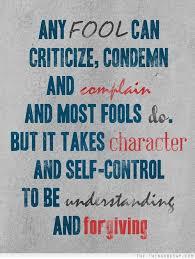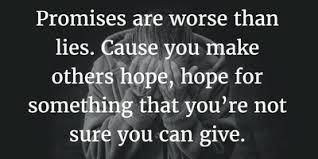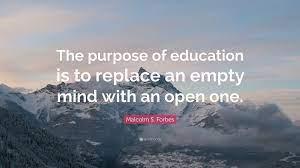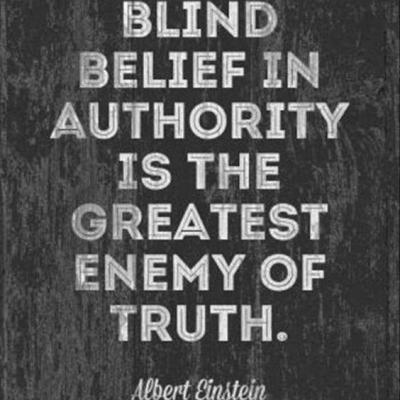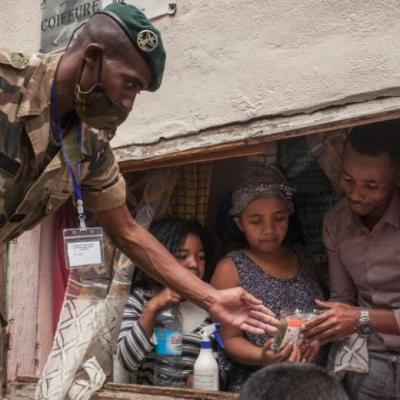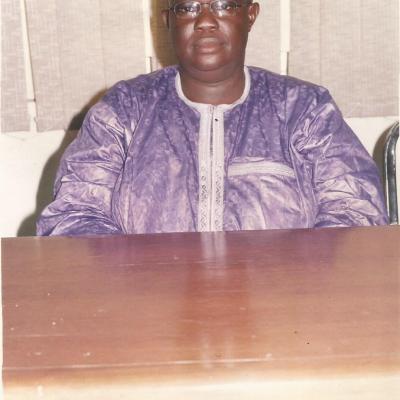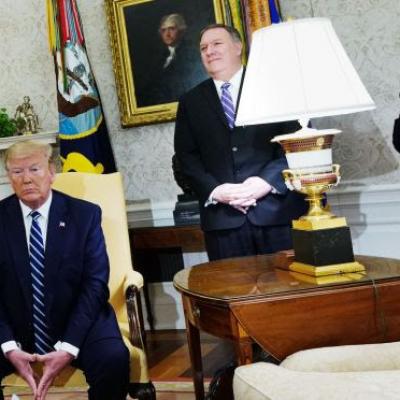Happenings
Events, People and Places
-
Walking in Obedience
- On 21/10/2021
- In Pictures


Deuteronomy 28:9
9 The LORD will establish you as his holy people, as he promised you on oath, if you keep the commands of the LORD your God and walk in obedience to him.
Also read-Legalizing Crime and Criminality
-Landlords and Tenants Associations, Crime and Criminality
-
Don't Condemn Other People By Prof. Sabitu Olagoke
- On 18/10/2021
- In The People Talk
 Mankind is yet to appreciate that God the almighty is the God of varieties and diversities.
Mankind is yet to appreciate that God the almighty is the God of varieties and diversities.We, must, therefore, realize that the religious goal is to reform, and strengthen us into unity, while the differences in ethnicity, tribes, and dialects are for the purpose of identification only and never to stigmatize and discriminate among one another.
The Holy Quran 45: 8-9 refers, '' He hears the Signs of Allah rehashed to him, ye is obstinate and lofty as if he had not heard them: then announce to him a chastisement Grievous! And when he learns something of Our Signs, he takes them in jest: for such there would be a humiliating chastisement.''
The Holy Bible, Romans 14: 1-4 states, ''
1 Him that is weak in the faith receive ye, but not to doubtful disputations.
2 For one believeth that he may eat all things: another, who is weak, eateth herbs.
3 Let not him that eateth despise him that eateth not; and let not him which eateth not judge him that eateth: for God hath received him.
4 Who art thou that judgest another man's servant? to his own master he standeth or falleth. Yea, he shall be holden up: for God is able to make him stand.''
To keep the peace we must display a high level of tolerance and rich knowledge about the faith of other people, to avoid condemning others blindly.
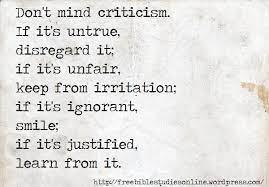 The Holy Quran 16: 125 refers, '' Invite all to the Way of the Lord with wisdom and beautiful preaching; and argue with them in ways that are best and most gracious: for thy Lord knoweth best, who have strayed from His path and how to receive guidance.''
The Holy Quran 16: 125 refers, '' Invite all to the Way of the Lord with wisdom and beautiful preaching; and argue with them in ways that are best and most gracious: for thy Lord knoweth best, who have strayed from His path and how to receive guidance.''Let us tolerate one another and jointly work for enduring peace.
Also read-Legalizing Crime and Criminality
-Landlords and Tenants Associations, Crime and Criminality
-Law Enforcement: The Reactionary Approach
-Government Workers-A Subject of Debate
-
God's Everlasting Dominion
- On 12/10/2021
- In Pictures
 Daniel 7 : 13-14
Daniel 7 : 13-1413 “In my vision at night I looked, and there before me was one like a son of man, coming with the clouds of heaven. He approached the Ancient of Days and was led into his presence. 14 He was given authority, glory and sovereign power; all nations and peoples of every language worshiped him. His dominion is an everlasting dominion that will not pass away, and his kingdom is one that will never be destroyed.
Also read-Legalizing Crime and Criminality
-Landlords and Tenants Associations, Crime and Criminality
-
Be careful about making Promises by Prof. Sabitu Olagoke
- On 12/10/2021
- In The People Talk
 The world will know peace and humanity will no longer be at war when we put into practice our knowledge about respect for the fundamental human rights, of others including women's rights, fulfillment of promises, walking the talk of the oath taken in the transaction as well as the assumption of responsibilities and finally, when we stand by the covenant we made most especially with God the almighty.
The world will know peace and humanity will no longer be at war when we put into practice our knowledge about respect for the fundamental human rights, of others including women's rights, fulfillment of promises, walking the talk of the oath taken in the transaction as well as the assumption of responsibilities and finally, when we stand by the covenant we made most especially with God the almighty.We, therefore need to be careful when making promises.
The Holy Bible, Ecclesiastes 5: 1-5 warns us against the breaking of promises. ''
1 Keep thy foot when thou goest to the house of God and be more ready to hear than to give the sacrifice of fools: for they consider not that they do evil.
2 Be not rash with thy mouth, and let not thine heart be hasty to utter anything before God: for God is in heaven, and thou upon earth: therefore let thy words be few.
3 For a dream cometh through the multitude of business; a fool's voice is known by multitude of words.
4 When thou vowest a vow unto God, defer not to pay it; for he hath no pleasure in fools: pay that which thou hast vowed.
5 Better is it that thou shouldest not vow, than that thou shouldest vow and not pay.''

In the same manner, the Holy Quran warns vehemently, most especially on the issue of the covenant which must be made on the basis of goodness only. The Holy Quran 16: 91 refers, ''Fulfill the covenant of Allah when ye have entered into it and break not your oath after ye have confirmed them: Indeed ye have made Allah your surety; for Allah knoweth all the ye do.''
Our good disposition towards others is what our creator demands.
The Holy Bible, Ecclesiastes 5: 5- 7, '' 5 Better is it that thou shouldest not vow, than that thou shouldest vow and not pay.
6 Suffer not thy mouth to cause thy flesh to sin; neither say thou before the angel, that it was an error: wherefore should God be angry at thy voice, and destroy the work of thine hands?
7 For in the multitude of dreams and many words there are also divers vanities: but fear thou, God.''
The Holy Quran, therefore, admonishes us in 16: 90 to be responsible in contributions to the growth and development of the people and the society as well.
''Allah commands justice, the doing of good and giving to kith and kin and He forbids all indecent deeds, evil and rebellion: He instructs you that ye may receive admonition.''
Remember that knowledge without the fear of God is empty, life without wisdom is meaningless and a system is driven without the divine instinct would be stagnant. All these qualities and virtues were expected to be worked on to be able to have exemplary lifestyles. Be wise.
Also read-Legalizing Crime and Criminality
-Landlords and Tenants Associations, Crime and Criminality
-
Former West Hazleton Police Chief Sentenced To Two Months’ Imprisonment For Civil Rights Violation
- On 08/10/2021
- In News
Press Release
WILKES-BARRE- The United States Attorney’s Office for the Middle District of Pennsylvania announced today that Brian Buglio, age 46, of Lattimer Mines, Pennsylvania, was sentenced by United States Magistrate Judge Joseph F. Saporito, Jr., to two months of imprisonment and a one-year term of supervised release that includes four months of home confinement.
According to Acting United States Bruce D. Brandler, Buglio, the former Chief of Police for the West Hazleton Police Department, pleaded guilty to a deprivation of civil rights, after he threatened a private citizen with felony criminal charges, in retaliation for social media posts created by the private citizen that were critical of Buglio and of the West Hazleton Police Department.
In pronouncing the sentence, Judge Saporito deemed Buglio’s actions an “abuse of power” when he threatened to use the criminal justice system to further his own personal interests. In addition to the term of imprisonment and supervised release, Judge Saporito also ordered Buglio to pay a $5,000 fine.
The case was investigated by the Scranton Federal Bureau of Investigation’s Public Corruption Task Force, which consists of members of the Pennsylvania State Police and the Pennsylvania Attorney General’s Office, and federal agents from the FBI and Internal Revenue Service. Assistant U.S. Attorney Phillip J. Caraballo prosecuted the case.
Source : FBI
Also read-Legalizing Crime and Criminality
-Landlords and Tenants Associations, Crime and Criminality
-
Education by Prof. Sabitu Olagoke
- On 08/10/2021
- In Special Report
 Without education, the whole world would have remained static in terms of civilization and development.
Without education, the whole world would have remained static in terms of civilization and development.
Unfortunately for human beings, we fail most of the time to act within the limits of the positive values for knowledge application. This is the reason for the destruction of what has been built over time.
Education, therefore, must be seen within the perspective of knowledge acquisition, wisdom for experience, and the power of a discerning mind to be able to be all-encompassing in taking the right decisions that would be accurate and precise at all times.
In the area of teaching education, the emphasis must be on the positive mindset to be able to bring out the best in the learners so that they would be positive change agents, on the issues of affecting or operating the system on the basis of justice and equity to meet up with the demands of human needs as an essential value of education if and only if we want peace, development alongside safety and security valves for the regulation and control at a sustainable level.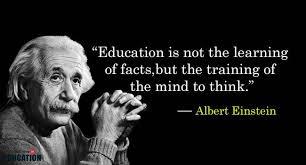
Education must be perceived as the process of facilitating learning or the acquisition of knowledge through skills on values, morals, beliefs, and habits.
Educational methods must include teaching, preaching, sermon, training, storytelling, discussion, critical thinking, problem-solving, and creativity, and directed research to manage today for a better tomorrow against all odds.
The educational domains must be explored to be able to achieve a functional education in the graduates.
Graduates must also possess the confidence, self-esteem, and positive mental attitude to be able to carry responsibilities independently to the point of engaging in the critical evaluation of issues to arrive at accurate decisions.
Furthermore, education must be adequately funded to achieve satisfactory results at all levels.
Above all, education is systematic development or training of the mind, capabilities, or character through a systematic instructional process. It is an essential tool to make every sub-system to be functional for the dynamics of the system.Also read-Legalizing Crime and Criminality
-Landlords and Tenants Associations, Crime and Criminality
-Law Enforcement: The Reactionary Approach
-Government Workers-A Subject of Debate
-
Faith and Wisdom by Prof. Sabitu Olagoke
- On 28/09/2021
- In The People Talk
 Three things stand out in the life of every man or woman-knowledge, wisdom, and the power of a discerning mind or the right inspiration from God for any faith to be able to stand the test time.
Three things stand out in the life of every man or woman-knowledge, wisdom, and the power of a discerning mind or the right inspiration from God for any faith to be able to stand the test time.However, faith is meaningless without hope, which is a function of just worship.
For it to be meaningful, they must exist and operate in an environment of love. Faith and wisdom, therefore, have a very high correlation coefficient.
The Holy Bible, James 1: 2-8 sermonizes on this: ''tribes which are scattered abroad, greeting.
2My brethren, count it all joy when ye fall into divers temptations;
3Knowing this, that the trying of your faith worketh patience.
4But let patience have her perfect work, that ye may be perfect and entire, wanting nothing.
5If any of you lack wisdom, let him ask of God, that giveth to all men liberally, and upbraideth not; and it shall be given him.
6But let him ask in faith, nothing wavering. For he that wavereth is like a wave of the sea driven with the wind and tossed.
7For let not that man think that he shall receive anything of the Lord.
8A double-minded man is unstable in all his ways.''
Faith cannot stand, therefore, without a high sense of comprehension of the words of God to the level of ease of application that would suit the true-life situation. This cannot be sustainable except we decide to live exemplary lifestyles by been scripture compliant. The Holy Quran, therefore, warns us against losing the sense of appreciation through unwarranted waywardness and frivolities in living our lives because this will not show any sign of wisdom in us.

The Holy Quran 2: 269 refers, ''He granteth wisdom to whom He pleaseth ; and he or she to whom wisdom is granted receiveth indeed a benefit overflowing; but none will receive admonition.''
Let us, therefore, show gratitude and wisdom by making a revival of integrity into our cultural psyche, restoration of ethical practices in our educational system, and the reawakening of living by the scripture in our religious practice.
Avoid destructive tendencies and also shun all acts capable of destabilizing the nation. Exhibit wisdom as the pillar for driving faith.
Also read-Legalizing Crime and Criminality
-Landlords and Tenants Associations, Crime and Criminality
-Law Enforcement: The Reactionary Approach
-Government Workers-A Subject of Debate
-
Drug Dealer Sentenced to 27 Months in Prison
- On 23/09/2021
- In News
PITTSBURGH, PA – Bobby Askew was sentenced to 27 months in prison for distributing fentanyl, heroin, and cocaine, including within 1,000 feet of a school in Butler, Pennsylvania, Acting United States Attorney Stephen R. Kaufman announced today.
Askew, age 39, formerlyof Philadelphia, Pennsylvania, was sentenced by United States District Judge Robert J. Colville. Judge Colville ordered that Askew serve six years of supervised release following his prison term.
In 2009, Askew was convicted of crack cocaine trafficking in Philadelphia. He was sentenced to 5 to 10 years in state prison. After being paroled from state prison, he relocated to Butler in Butler County and trafficked fentanyl, heroin, and cocaine as part of a Butler-based drug trafficking crew. Askew dealt these drugs on a regular basis between 2017 and 2020, including within 1,000 feet of multiple schools in Butler.
Assistant United States Attorneys Yvonne M. Saadi and Craig W. Haller prosecuted this case on behalf of the United States.
The Pennsylvania State Police, the Federal Bureau of Investigation, and the Butler County District Attorney’s Drug Task Force led the investigation leading to the conviction and sentence in this case.
Source-FBI
Also read-Legalizing Crime and Criminality
-Landlords and Tenants Associations, Crime and Criminality



